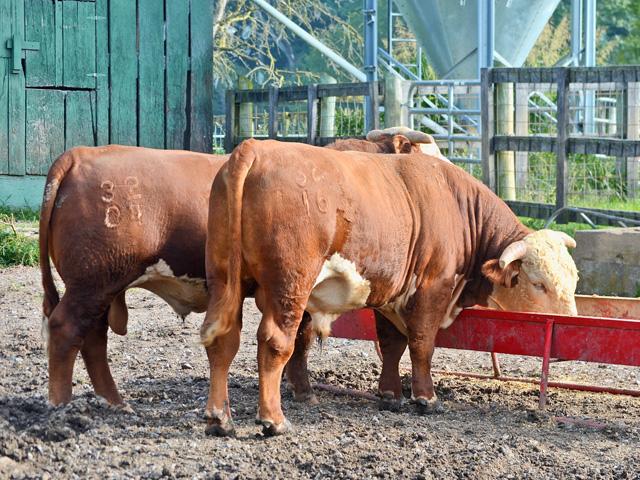Ask the Vet
Multi-Sire Breeding Programs Have Advantages
READER QUESTION:
Is there any research that shows whether it's preferable to keep one bull with 30 cows per pasture or to have six bulls in with the whole herd -- in my case 180 head?
DR. MCMILLAN'S ANSWER:
This is a great question. I know of no research that specifically looks at the economics of these two different approaches.
P[L1] D[0x0] M[300x250] OOP[F] ADUNIT[] T[]
There are advantages to a multi-sire breeding program. First in my mind is the fact that any bull can "go bad" at any time. This may not be obvious when it happens, and he may still be breeding cows. Additionally, if several cows come into heat at one time, multiple bulls should be more effective at servicing and settling them. There is also less need for fencing and working facilities with the multi-sire approach. Larger pastures can be used, or you can rotate through several pastures as forage availability dictates. The multi-sire program is one of my favorite management practices.
Like every good thing, there are some possible drawbacks to consider too. High on the list, injury to bulls and even cows increases when there are multiple bulls in the herd. You also don't know the sire of a calf without DNA testing. And if the "boss" bull is infertile, he may beat back fertile bulls, preventing cows from getting pregnant.
I found one study that looked at multi-sire breeding programs in several large herds. Those researchers found on average bulls sired 15 to 20 calves per breeding season. However, some bulls sired more than 50 calves. And 7.3% of bulls in the program sired no calves. In at least half of the breeding seasons, at least one bull was removed due to injury or poor condition.
All of this tells me that highly prolific bulls will have a disproportional impact on genetic trends in the herd. Are these bulls the genetically superior bulls? Do we want those prolific bulls to determine the direction of the herd?
I would encourage readers to write or email if they have thoughts on this issue.
**
Editor's Note:
Please contact your veterinarian with questions about the health of your herd or other animals. Every operation is unique, and the information in this column does not pertain to all situations. This is not intended as medical advice but is purely for informational purposes.
Write Dr. Ken McMillan at Ask the Vet, 2204 Lakeshore Dr., Suite 415, Birmingham, AL 35209, or email vet@progressivefarmer.com.
(c) Copyright 2024 DTN, LLC. All rights reserved.






